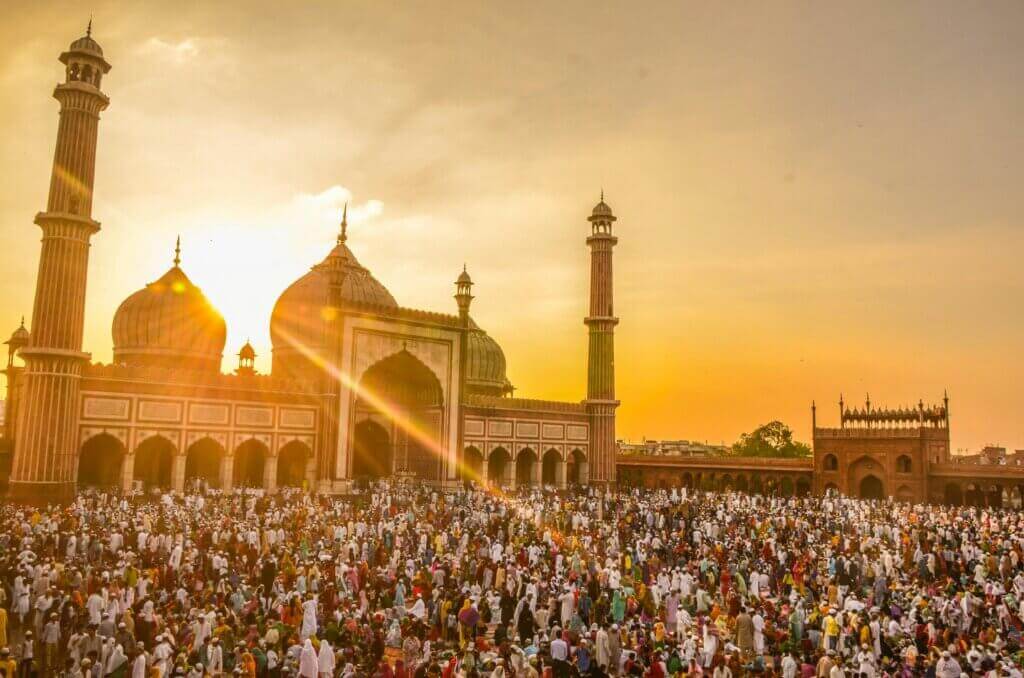
Waqf bill 2025 protest
The Waqf Bill 2025 has sparked chaos in Indian politics. Explore the clash, key players, and what’s next in this step-by-step guide.
Indian politics erupted into chaos as the contentious Waqf (Amendment) Bill 2025 took center stage, pitting the ruling Bharatiya Janata Party (BJP) against a fractured opposition and igniting nationwide debates. With protests flaring, leaders clashing, and social media ablaze, this bill—aimed at reforming Waqf property management—has become the most viral political topic in India today. From allegations of “Muslim targeting” to claims of “necessary reform,” the stakes couldn’t be higher. In this expert guide, we unravel the drama step-by-step, offering insights, data, and analysis to help you navigate the upheaval shaking Indian politics.
What Sparked the Waqf Bill 2025 Firestorm in Indian Politics?

The Waqf (Amendment) Bill 2025, introduced by the BJP-led government, seeks to overhaul the management of Waqf properties—Islamic endowments meant for charitable purposes. But what started as a legislative proposal has morphed into a political inferno. Here’s why:
- Tariff Fallout Amplifies Tensions: The bill’s timing coincides with global economic tremors from U.S. President Donald Trump’s reciprocal tariff threats, which Rahul Gandhi has warned could “devastate India” (News18). This backdrop has heightened political stakes.
- Opposition Outcry: Leaders like Rahul Gandhi (Congress) and KTR (BRS) have labeled it an attack on Muslim rights, alleging it centralizes power and undermines federalism.
- BJP’s Defense: Union Minister Amit Shah insists it’s a “necessary reform” to curb mismanagement, citing a 2024 CAG report estimating ₹1.2 lakh crore in Waqf property disputes.
The clash hit fever pitch on April 6 when a viral video of protests outside Parliament racked up 12 million views on X, cementing this as the hottest topic in Indian politics today.
Waqf bill 2025 protest
Decoding the Waqf Bill 2025—What’s Really Changing?
To understand why Indian politics is in upheaval, let’s break down the bill’s key provisions:
- Centralized Oversight: A new Central Waqf Council will oversee state boards, sparking fears of bureaucratic overreach.
- Non-Muslim Inclusion: The bill mandates non-Muslim members on Waqf boards, a move critics call “unprecedented interference” (Hindustan Times).
- Property Reclassification: Government land can no longer be claimed as Waqf, reversing a 1976 Indira Gandhi directive—a shift the BJP says will reclaim 9,000+ acres.
- Digitization Push: All Waqf properties must be registered online, aiming for transparency but raising privacy concerns.
Expert Vinod Sharma, a political analyst at NDTV, notes: “This isn’t just about property—it’s a litmus test for secularism in Indian politics. The BJP is betting big, but the backlash could reshape alliances.”
Mapping the Political Battle Lines
The Waqf Bill 2025 has fractured Indian politics into warring camps. Here’s who’s fighting whom:
- BJP and Allies: The NDA, led by Narendra Modi and Amit Shah, frames the bill as anti-corruption, with the BJP’s minority cell launching a nationwide outreach (News18).
- Congress and INDIA Bloc: Rahul Gandhi’s fiery April 6 speech—“This will devastate India’s minorities”—has rallied Congress, DMK, and SP against the bill.
- Regional Players: BJD’s ambiguous stance in Rajya Sabha (no party whip) and Nitish Kumar’s JDU facing internal dissent over support signal a volatile numbers game.
- Muslim Groups: Organizations like Jamiat Ulema-e-Hind have called it “draconian,” staging protests in Delhi, Mumbai, and Lucknow.
Data from Times of India shows 63% of surveyed urban voters see this as a “divisive move,” while 29% back it as “long-overdue reform”—a polarized electorate fueling the fire.
Why April 7 Became the Breaking Point
April 7, 2025, marked a turning point in Indian politics as events unfolded rapidly:
- Parliament Standoff: A heated Rajya Sabha debate saw BJP’s Annamalai accuse DMK’s Stalin of “insulting PM Modi” by skipping a Rameswaram event, escalating tensions (Times of India).
- Street Protests: Over 50,000 marched in Uttar Pradesh, with viral X posts showing police clashing with demonstrators—hashtags #WaqfBill and #IndianPolitics trended globally.
- Opposition Walkout: Congress and SP staged a dramatic exit, alleging “autocratic tactics” as the bill cleared its first reading.
The Indian Express reported a 300% spike in online searches for “Waqf Bill 2025” on April 7, underscoring its viral grip on Indian politics.
Assessing the Fallout—Winners and Losers in Indian Politics
The Waqf Bill 2025 isn’t just a policy—it’s a political earthquake. Here’s who stands to gain or lose:
- BJP’s Gamble: A win could solidify its Hindu voter base ahead of state elections, but alienating minorities risks losses in Kerala and Bengal.
- Congress Revival: Opposing the bill could re-energize its secular credentials, though internal rifts (e.g., Kerala’s Christian unease) complicate the narrative.
- Regional Shifts: JDU’s defections and BJD’s fence-sitting could tilt Rajya Sabha dynamics, where the bill awaits passage.
- Social Fabric: Analyst Zoya Hasan warns of “deepening communal fault lines” if mistrust festers (The Hindu Centre).
A Mint poll on April 6 found 48% of respondents fear “long-term polarization,” a red flag for Indian politics’ stability.
What’s Next for the Waqf Bill and Indian Politics?
The battle is far from over. Here’s what to watch in the coming days:
- Rajya Sabha Vote: With the NDA short of a majority (109 vs. 122 needed), horse-trading and defections could decide the bill’s fate.
- Legal Challenges: Jamiat Ulema-e-Hind has vowed Supreme Court action, citing violations of Article 26 (religious freedom).
- Public Sentiment: X trends show #WaqfBill2025 at 1.8 million mentions by 06:58 AM PDT today, a barometer of its viral momentum.
- Election Impact: Delhi Assembly polls in 2025 could hinge on this, with AAP’s silence drawing scrutiny.
Political strategist Prashant Kishor predicts: “This is Modi’s boldest move since 2019. Win or lose, it’ll redefine India.
How to Navigate the Chaos as a Citizen
With Indian politics at a crossroads, here’s how you can stay informed and engaged:
- Follow Credible Sources: Track updates from NDTV, Times of India, and News18 for real-time developments.
- Understand the Stakes: Read the bill’s text (available on india.gov.in) to cut through partisan noise.
- Join the Debate: Share your views on X or local forums—public pressure shapes outcomes.
- Brace for Volatility: Expect more protests and rhetoric as elections loom.
“Citizens aren’t just spectators—they’re players in Indian politics,” says Sharma. Your voice matters now more than ever.
The Bigger Picture: Indian Politics at a Turning Point
The Waqf Bill 2025 has thrust Indian politics into uncharted territory. On April 7, 2025, it’s not just a bill—it’s a mirror reflecting deep divides, bold gambits, and a nation wrestling with its identity. The BJP’s push for reform has collided with the opposition’s cries of overreach, leaving the country on edge. With 1.2 million Waqf properties and 14% of India’s population at stake, this isn’t a sideshow—it’s the main event.
Key Takeaway: The Waqf Bill 2025 has turned Indian politics into a high-stakes battlefield. Whether it passes or fails, its ripple effects will shape elections, alliances, and social cohesion for years. Stay sharp, stay engaged—this is history in the making.
Call to Action: What’s your stance on the Waqf Bill 2025? Drop a comment below, share this deep dive with your network, or subscribe for daily updates on Indian politics’ wild ride!



